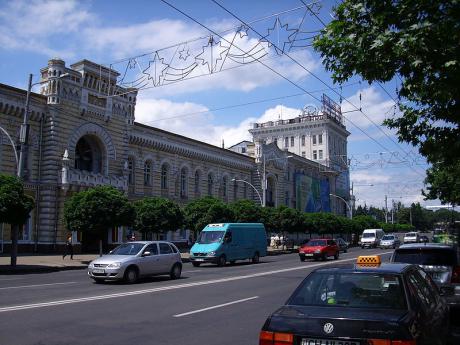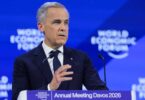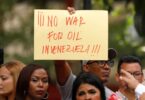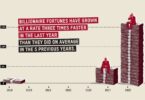This Sunday, Chișinău votes in the first round of mayoral elections. But as oligarchic forces line up to take the city, one thing is clear: the public sphere has been cleared of real politics.
_0.jpg)
This Sunday, local elections are scheduled to take place in Chișinău and Bălți — the capital and second largest city of Moldova respectively. These elections were announced after the mayors of these two cities, Dorin Chirtoacă (Chișinău) and Renato Usatîi (Bălți), resigned from their posts.
Renato Usatîi, elected as mayor of Bălți in 2015, resigned in February 2018 after living for over a year in Moscow, hiding from Moldovan law enforcement. Moldovan prosecutors claim that Usatîi was involved in a criminal plot that intended to assassinate Russian banker German Gorbuntsov in London in 2012. In response to these allegations, Usatîi fled to Moscow in 2014 and attempted to rule the city from the Russian capital for more than a year. As the tensions between him and Vladimir Plahotniuc (an oligarch believed to control most of the Moldovan government) grew, Usatîi found it difficult to govern the city from afar. Last fall he announced his intention to conduct a local referendum in Bălți in order to confirm his popularity, but the authorities in Moldova dismissed the initiative due to procedural violations. Then, in February this year, Usatîi unexpectedly announced his resignation, citing political and police pressure on city councillors from his political party. He expressed hopes that after the elections Bălți would have a “normal mayor and normal rule”.
In Chișinău, Dorin Chirtoacă’s path to resignation was more convoluted. In February-March 2017, Moldova’s Liberal Party, which Chirtoacă has been vice president of since 2005, was formally still an important component and enthusiast supporter of the ruling coalition. Then, after the Liberal Party refused to support the modification of Moldova’s electoral system (from a proportional to a mixed system), the trouble began. First, Chirtoacă was arrested on claims that he was involved in a dubious scheme that extorted money from the city’s parking system. Later he was released, but the court ruled that he should be temporarily suspended from his position and placed under house arrest during the investigation.
Chirtoacă remained under arrest until autumn 2017, when two significant events happened. First, on 6 November, Silvia Radu, the former head of the local branch of Gas Natural Fenosa and a person closely associated to Vlad Plahotniuc, was named as interim mayor of Chișinău. Second, a referendum on the removal of Chirtoacă, initiated by Moldova’s Party of Socialists, took place on 19 November. The referendum failed due to low turnout, but also because the appointment of Radu as acting mayor completely altered the political field, suggesting that the ruling Democratic Party and Vlad Plahotniuc were interested in a takeover of the capital.
Chirtoacă’s symbolic victory at the referendum (the city boycotted the referendum so Chirtoacă could nominally continue serving) thus became a resounding defeat, as media associated with the Democratic Party started to promote Radu aggressively. Every day that Silvia Radu remained in power was attributed to Chirtoacă’s inaction. The majority of citizens supposedly voted for Chirtoacă to stay in power, but he was immediately asked to resign in order to convene new elections and “not to give the city into the hands of Plahotniuc”.
_and_Dorin_Chirtoacă_(back).jpg)
Then, in February 2018, Chirtoacă finally made the announcement expected from everyone: he resigned the mayor’s office, opening the way for snap local elections on 20 May. (Regular elections are supposed to take place next year, sometime in the spring). Later, Chirtoacă made another spectacular move (whose causes are still subject of speculation in the city): Chirtoacă decided not to run in the elections, leaving his Liberal Party colleague Valeriu Munteanu to defend his legacy.
What are the elections about?
As always with local elections in capital cities, the contest in Chișinău is about more than the election of a city administrator. In fact, as I have discussed in an earlier analysis, there are several parallel electoral campaigns being run simultaneously in the city.
At the general level, Chișinău’s mayoral elections are about whether the city is to be handed to Vlad Plahotniuc or not. Most of the candidates (including, strangely enough, Silvia Rada) claim that one of their main goals is to prevent the city from falling into the powerful oligarchic hands of Plahotniuc and Moldova’s Democratic Party. In general, candidates mention Plahotniuc mostly in negative terms and pretend to oppose him. Andrei Năstase, candidate of the Dignity and Truth Party, is the most vocal in this aspect. Năstase started his campaign immediately after Chirtoacă announced his resignation, even before the Central Electoral Commission had established the date for the local elections. Nevertheless, he was very vocal in claiming he represents the true opposition to oligarchy and calling all non-oligarchic political forces in the country to support him. So far, the polls put Năstase in third place (and not a contender for the second round).
On another level, the elections are, as has always been the case in Chișinău, about geopolitics: West vs East, Russia vs Europe, “Gayropa” vs “traditional values”, “civilised Europe” vs “barbarian Russia” etc. It is a traditional situation in Chișinău to see the city as the site of struggle of an “apocalyptic battle” of various geopolitical or moral forces. Serafim Urechean, a former Moldovan trade union leader, won the city elections in 2003 claiming that he would “fight communism”, and Dorin Chirtoacă was elected several times because he pretended to “embody” the force of youth, the European aspirations of city residents and their unwillingness to give the city into the hands of Moscow.
Indeed, every time the elections go into the second round, the two final candidates pretend that they represent two different geopolitical affiliations — a pro-European one, on the one hand, and a pro-Russian one, on the other hand. Although the main candidates in this round of local elections haven’t particularly emphasised Moldova’s “geopolitical struggle”, it is already emerging in some parts of the political discussion (mostly on the so-called liberal Right, with parties claiming that the fragmentation of the pro-European vote will help the “Left”, represented by the Party of Socialists, to win the elections). Moreover, the “geopolitical battle” is almost sure to be the main topic of debate (and separation) at the second round when, as polls suggest, the “leftist pro-Russian” Ion Ceban, the socialist candidate, will confront some “pro-European” candidates.
Within the campaign itself, however, there are other electoral campaigns being run in parallel.
In one of them, several candidates — Valeriu Munteanu, Constantin Codreanu (who is being supported by the former Romanian president Traian Băsescu), Alexandra Can — who call themselves pro-unionists (i.e. they argue for closer relationships and even reunification with Romania) see and talk about the elections as being another step toward reunification, another opportunity for realising this “historical desire” and another chance to implement a “historical truth”. Of course, there is no place in this debate for the current burning issues of the city: poor pedestrian infrastructure, green areas being destroyed illegally in order to make space for real estate projects, lack of opportunities for participation and democratic inclusion of citizens in the decision-making process. Why bother with these mundane issues if unification with Romania will solve everything?

In another electoral campaign, several political parties, both big and small, attempt to simulate a pragmatic debate about the city, targeting its most important and pressing issues: transportation, green areas, social policies in the city, architectural heritage.
Take, for example, the Party of Socialists, which is well known for its aggressive pursuit of a culturally conservative agenda, consistently expressing anti-LGBT, pro-”traditional values” and anti-immigration positions — all of which is integrated into pro-Russian sympathies. (A reminder: President Igor Dodon won the 2016 election partially because he employed “the motherland is in danger” rhetoric, claiming that thousands of Syrian refugees would “invade” Moldova if his opponent was elected.) But in the campaign for Chișinău, the Party of Socialists has abandoned almost any “identity” debate and tries to act as the reasonable and pragmatic technocrats in the popular debate. Ion Ceban, the socialist candidate, is running on a platform of radical change for the city, combining the rhetoric of a good administrator (more efficiency in the work of local authorities) and a “dreamer” (one of his promises is to build a river port on the River Dniester). Ceban, a city councillor and head of the president’s press department, is highly likely to make it into the second round (and, in my mind, has a 50/50 chance of winning). Ceban’s biggest disadvantage is that he is still perceived as Dodon’s man, and that he is embarked on a mission to conquest the city for pro-Russian forces.
Also in the section of ”big ideas”, Aleksandr Roșco, the candidate of the “Our Home Moldova” Party, wants free public transportation and free wifi in Chișinău, but he is unlikely to advance very far in the competition.
.jpg)
And then there is Silvia Radu, who is “running her own electoral campaign”. Although Radu is supported by the entire media empire belonging to Vlad Plahotniuc and the Democratic Party (and Moldovan state institutions — recently she was caught on camera while being accompanied in one of her electoral visits by a police car), she still presents herself as an “independent candidate”. Indeed, Radu is running on an anti-political campaign: she refuses (so far) to participate in any public debate, claiming that she has no time to engage in political battles because… she is busy governing the city and solving citizens’ problems. That said, this doesn’t stop her being accompanied on every trip by a massive team of journalists that report her every step. Radu presents to the electorate no vision for the city, only her media persona, which she successfully carries from one television channel to another. Or, she brings the TV teams with her. Or, she invites the TVs to her home where she presents herself as a regular mother and wife who still finds time for the family despite her busy public schedule.
Radu’s electoral program represents a strange mix of activistic slogans (stop illegal property development in the city!), advertising campaigns (a green and clean city!), but also slogans that appear to be description of a yoga or religious meditation classes (Chișinău united in harmony and peace). In terms of concrete measures, Silvia Radu’s program resembles the checklist of a plumber or engineer (to repair elevators, to fix the traffic problem etc), while emphasising that the “city is tired of politicians”, it needs “competent people” and “no more corrupt public officials” and that any attempt to criticise her is a smear campaigns against the “only independent candidate”
To summarise, Radu has built an anti-political platform where local political process (the elections and the electoral campaign) are regarded as a necessary evil (necessary, but still evil), a series of useless procedures and rules that interfere with the good governance of the city. Silvia Radu, it seems, could have governed the city very well without the elections.
But it would be a mistake to focus only on Silvia Radu’s media persona. In fact, Radu is filling a political niche created long before her by a combination, in my view, of three factors: 1) poor governance record of the previous local administration headed by Dorin Chirtoacă; 2) the consolidation of a discourse in eastern Europe that sees corruption and especially corruption of politicians as the main source of the region’s problems. This has led to an increased demand of experts that would replace “corrupt politicians” (Alexey Navalny is the representative of this tendency in Russia; Nicușor Dan in Romania and so on); 3) the emergence at the city level, in recent years, of a urban discourse focused strictly on urban topics: roads, parking, heritage, sidewalks, protection of green areas. This discourse presents itself as being apolitical and avoiding affiliation with any political party.

All these developments have created an “anti-political” activist niche that Silvia Radu, with the help of the Democratic Party’s media machine, is successfully filling.
What to expect?
With the first tour of elections scheduled for Sunday, most of the polls suggest Silvia Radu and Ion Ceban will face off in the second round — the ruling party’s “independent candidate” against the official opposition’s “pragmatic candidate”. This has all the ingredients of a false choice: both candidates are part of the ruling tandem.
This development will force Moldova’s “anti-oligarchic” forces (Andrei Năstase, Valeriu Munteanu and others) to make an unpleasant choice between their geopolitical affiliation (“pro-European”) and anti-oligarchic struggle. Boycotting the elections is not a choice as, if Ion Ceban succeeds, his success will be blamed on them. With parliamentary elections in the fall, the “burden” of facilitating the election of a pro-Russian candidate in Chișinău will lay heavy on their shoulders. It will be a tough choice for them.
The parliamentary elections later in the year (probably November-December) are, indeed, among other factors weighing heavy in the local elections. For many, the results of the candidates in the local elections will define their positions and support in the parliamentary elections.
But there is another aspect, also related to the parliamentary elections which is important and overlooked. With the country passing from a proportional to a mixed electoral system, the parliamentary elections will take place, for the first time in more than 20 years, according to a new formula that will include both proportional representation and single-member constituencies. While the popularity of the ruling party is traditionally low (hence they cannot count on more than a few seats on the proportional lists), they are expected to compete fiercely for seats in the single-member constituencies. It is expected that the ruling party will be repeating the same model used in Silvia Radu’s case, putting forward “apolitical” candidates in order to get most of the single-member constituencies. In this sense, this Sunday is likely a rehearsal for the final show.
This article has been published first on Open Democracy.









